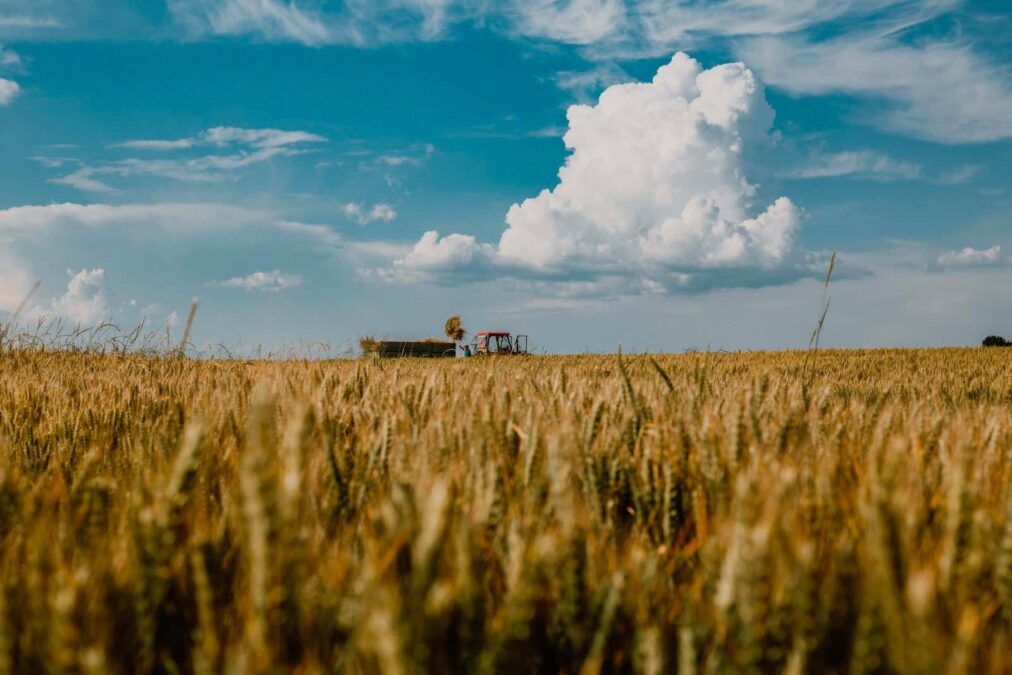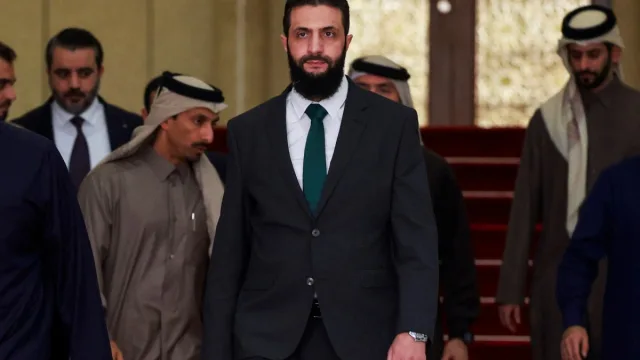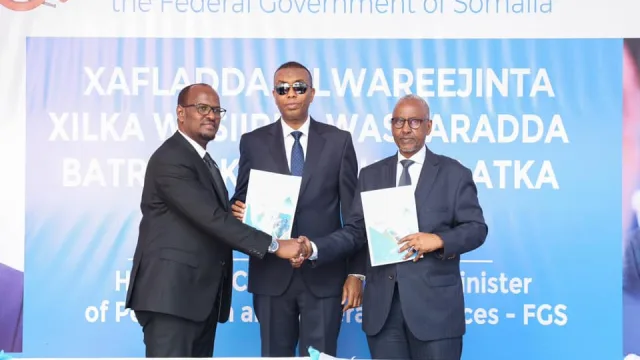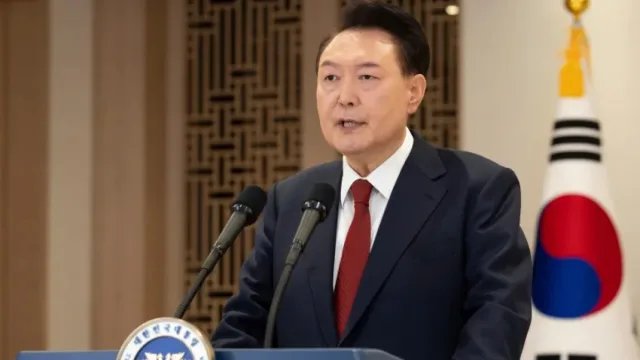The ongoing war in Ukraine has captured the attention of the world. International leaders have stood…

The ongoing war in Ukraine has captured the attention of the world. International leaders have stood in solidarity with Ukraine and tried to make an impact, albeit from afar. The aim has been to deter Russian aggression by highlighting to Vladimir Putin and his associates the concrete costs of their choices. This has included enforcing sanctions and financial blockades on Russian banks, exports, and state-owned companies, with the aim to cripple the Russian economy, negate Putin’s ability to fund the ongoing invasion, and change the Russian public’s cost-benefit analysis of the war.
These efforts, however well-intention-ed, have triggered unintended consequences for the global economy. The disruption of supply chains caused by the sanctions on Russian exports as well as Russian-owned Western corporations is exacerbating the delicate global balance that relies on a web of interconnected countries and companies to ensure food production. Although it is important to make every effort to act against Russia’s actions, the consequences of these economic sanctions are detrimental, especially for developing nations. Without action, these sanctions will ravage third-world economies, triggering worsening food insecurity, civil unrest, and economic disaster.
The seminal role that Russia and Ukraine play in the global food production system is seen through their central role in the production of grains, namely wheat, and barley, as well as fertilizer. The problems triggered by the blanket sanctions which have been imposed are both the loss of availability of these basic products, as well as the significant rise in prices for fertilizer and grains. In Europe for example, prices of wheat have risen more than 70% as a consequence of the conflict. Developing countries however are the ones worst hit by the reduction in access to Russian and Ukrainian commodities.
In the wake of the Russian invasion of Ukraine, nearly 25 million tonnes of wheat and barley are unable to leave the Baltic, causing a deficiency in the market which analysts are already warning could result in mass famine in parts of Africa. Russia and Ukraine supply approximately 30% of the global exports of wheat and barley, and 35 countries in Africa utilise these nations as their primary provider of food imports. Somalia alone receives more than 90% of its wheat from Russia and Ukraine, and since the start of the war, the price of wheat has risen by over 40%. Global food prices are reported to be rising at the highest rates ever recorded.
Aside from commodities which cannot now be exported from Russia, the impact has been felt as a result of companies owned by Russians producing these commodities in Europe which have also found themselves on the receiving end of sanctions. One such example is EuroChem, forced to suspend operations in March due to sanctions on its owner. Employing more than 100,000 people, EuroChem is one of the world’s largest fertilizer producers. Despite its size and the importance of its production to food security, punitive measures have been levied against the company as a result of the former owner, Andrey Melnichenko, being Russian. Similar punitive measures against family members of Russians have been seen, with some of those on the receiving end of sanctions no longer residing in Russia or maintaining a connection to Putin or the Kremlin.
Sanctions against European-based companies with Russian ownership make it impossible to operate. With banks no longer offering lines of credit and transportation companies not willing to work with companies such as EuroChem, factories in Belgium, Lithuania and Estonia were forced to close. EuroChem factories in Brazil and the U.S. are still operating, but with great difficulty. The greatest impact of these measures has not been felt in the purse of the Kremlin leadership, but rather has been felt by everyday people.
The economic sanctions which prevent Russia from exporting fertilizer to developing nations and which have prevented Russian-owned businesses from operating have resulted in the price of fertilizer itself rising by 50% and exports being reduced by 24%. If this exponential hike in fertilizer prices continues, it will detrimentally impact the prices of other essential commodities such as rice. Beyond that, a reduction in fertilizer uses as a result of limited availability risks triggering widespread malnutrition and the loss of human life in already-unstable developing countries.
It is for these reasons that, as stated by António Guterres, the UN Secretary-General, Russian food and fertilizers must have unrestricted access to the global market. According to Guterres, “Global hunger levels are at a new high. In just two years, the number of severely food insecure people has doubled, from 135 million pre-pandemic to 276 million today.” It is imperative that sanctions and restrictions meant to cripple the Russian economy and the war effort do not end up detrimentally impacting the domestic security and wellbeing of other nations too. In this regard, he further said, “If high fertilizer prices continue, today’s crisis in grain and cooking oil could affect many other foods including rice, impacting billions of people in Asia and the Americas.”
The secondary consequence of blanket sanctions which place commodities produced by Russia in the same basket as those produced on the European continent in Russian-owned factories, or those that do business with Moscow, is the potential for the deterioration into civil unrest in the developing world. This is to be expected as tensions rise between people and their governments in the wake of rising prices of food and commodities. Peru is experiencing instability as a consequence of rising food and fuel prices due to the economic sanctions on Russian resources, with the Peruvian government needing to go so far as to deploy military personnel to neutralize protesters blockading roads in defiance. Similarly, thousands of Greek farmers protested in the streets of Athens in response to rising fuel and fertilizer prices. Dissatisfaction and even desperation are being echoed throughout the world, with national protests stretching from Iran to Argentina.
To prevent such unintended consequences, restrictions must be removed from the owners of European-based producers of integral commodities. Sanctions placed on Russian goods must be done in a smart way so that citizens of the world do not end up paying the price. Sanctioning Russia is important, however assuming that every company with a Russian connection, without distinction, must be sanctioned, is dangerous and frankly, bad policymaking.
In light of these concerns, and in order to minimize the effects of grain and fertiliser deficiencies, the United States went so far as to issue a general license (6A) to the Russian Harmful Foreign Activities Sanctions Regulations assuring the possibility of the steady and stable import of Russian fertilizer into the United States despite international sanctions on Russia. To help stave off a crisis, EuroChem have been producing free supplies of fertilizer in an attempt to alleviate supply demands. However, these measures are not enough to mitigate the spiraling crisis of global food insecurity.
To ensure global food security, tackle rising fuel prices, and counteract the harm imposed on the wider global market, the international community must ensure the global flow of non-sanctioned fertilizers and agricultural commodities to the world market. Remedying these sanctions and imposing them smartly will not lessen the economic pressure already strategically placed on Vladimir Putin by the international community. What it will do is prevent innocent people from being dragged down alongside Russia’s strongman.
BY: BRUNO ROTH





